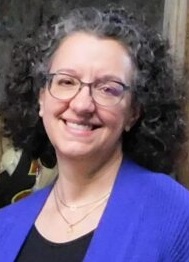Harm reduction “is probably not what you think it is,” Becca Moyer said.
Harm reduction programs meet people where they are, Moyer, director of specialty programs at Blueprints for Addiction Recovery, and Melinda Zipp, director of outreach services for the Lancaster Harm Reduction Project, told the audience at Thursday’s forum on the Lancaster County Overdose Fatality Review Team’s inaugural annual report.
The Lancaster Harm Reduction Project operates in Lancaster, Dauphin and York counties. It has around 300 clients in each county, Zipp said, a number that increases to 400 or so in summer.
The items it distributes include syringes, fentanyl test strips, Narcan, sharps containers, safe sex kits and wound kits, Zipp said. It also provides information and referrals for treatment.
Zipp and Moyer emphasized that that their program is not prescriptive. It prioritizes autonomy, Zipp said, and trusts drug users to be “the expert on their own life.”
“People are talking at them constantly their whole lives,” Moyer said. “They need somebody to sit with them and talk to them.”
Public health researchers, including the Centers for Disease Control & Prevention, say syringe exchanges are safe, reduce disease transmission and do not increase drug use or crime. The terms of the nationwide opioid settlement say syringes are one of the “core strategies” that the money can be used to fund.
That is in tension with Pennsylvania’s legal framework, which does not currently exempt syringe services from prohibitions on distributing paraphernalia. In February, Spotlight PA reported that Westmoreland County pulled $150,000 in opioid funding from a nonprofit due to legality concerns. The nonprofit, FAVOR, offers syringe services, although the funding would not have gone toward it.
Zipp told One United Lancaster her organization does not see syringe distribution as illegal, but considers it a gray area, because it’s never been litigated in court.
County commissioners Josh Parsons and Ray D’Agostino have both said they oppose providing syringes or other items used for drug intake as a harm reducation strategy. In August, Parsons said doing so would be illegal and “incredibly detrimental to the community.”

His comments came in response to local advocate and researcher Gail Groves Scott, who recounted the exchange at Thursday’s forum. She also noted that a bill, House Bill 1245, that would make syringe services legal is up for a vote this coming Wednesday in the state House Judiciary Committee.
In an email, Commissioner Parsons said the issue currently is moot: As long as distribution of paraphernalia is illegal, the county can have no role in it.
“If that changes, we can have a policy discussion about it,” he said. “I would still oppose it for several reasons, but that is not really relevant while it is illegal.”
He noted that any bill facing a committee vote is still a long way from becoming a law.
Zipp said the Lancaster Harm Reduction Program is launching a pilot program to mail its supplies to clients. It will mail anything that’s legal, she said: Not syringes, but Narcan, test strips and other items. If successful, it plans to seek county opioid funding, she said.
(Editor’s Note: This story was updated Feb. 9 to add Commissioner Parsons’ comment.)






